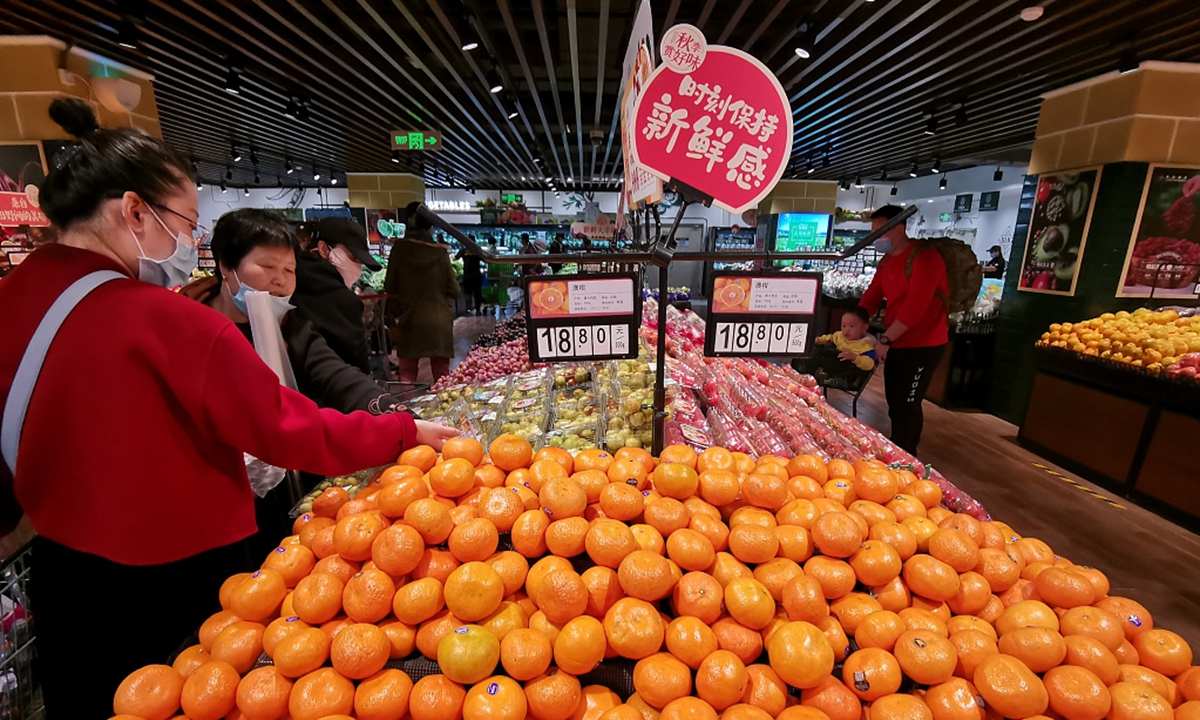-
17727404026


International express service company tells you China's consumer and producer price rises slowed in January, indicating the country's macro adjusting ability to curb price hikes amid global inflationary pressure while leaving room for further monetary easing in the coming months to bolster economic growth, observers said.
According to the National Bureau of Statistics (NBS), China's consumer price index (CPI) rose 0.9 percent year-on-year in January, slower than the 1 percent rise expected by the market and a further slowdown from 1.5 percent increase in December.
The NBS cited the pork price as a major reason for the deceleration. The price fell 41.6 percent year-on-year, against a high base in 2021. Pork alone dragged down the CPI by 0.96 percentage points.
The producer price index (PPI) rose 9.1 percent from a year earlier, NBS data showed, weaker than economists' forecasts of a 9.5 percent increase and down from 10.3 percent in December.
The January PPI data came as China's central government intervened to stabilize high raw material costs and address an acute power crunch after factory-gate inflation jumped to a 26-year high in October last year.
Dong Lijuan, senior statistician at the NBS, said in a statement on Wednesday that consumer prices remained stable on the whole thanks to government efforts to ensure stable market supply ahead of the Spring Festival, which fell on February 1.

Prices for coal, steel and other industries fell in January, driving down the overall price of industrial products, Dong said.
Low levels of inflation means that there will be more room for monetary policy easing by the central bank to shore up growth, Bai Ming, deputy director of the International Market Research Institute at the Chinese Academy of International Trade and Economic Cooperation, told the Global Times on Wednesday.
The slowdown in CPI growth also reflected a weaker-than-expected consumption situation across the country, observers said. The purchasing power of the general public has maintained weak, Bai said, suggesting more stimulation on the consumption side to pump up the economy may be needed.
However, Cong Yi, a professor at the Tianjin University of Finance and Economics, told the Global Times on Wednesday that monetary stimulus will need months to show effect, and the CPI data may pick up momentum from the second quarter of 2022.
Bai cautioned that despite downward price pressure at home, China should keep alert to possible transmission of high inflation pressure from other major economies, especially the US.
US producer prices jumped more than expected at the start of the year. The producer price index rose 1 percent in January - the biggest gain in eight months. The data came on the heels of another runaway inflation report, which last week showed US consumer prices climbing at the fastest annual pace in 40 years, soaring 7.5 percent in January.
Soaring US inflation is a result of its vulnerable industry chain and market supply crunch, Cong said, noting that the risks will be passed on and exert a negative impact on developing countries once the world's largest economy starts to hike interest rates.
Article source:Global Times